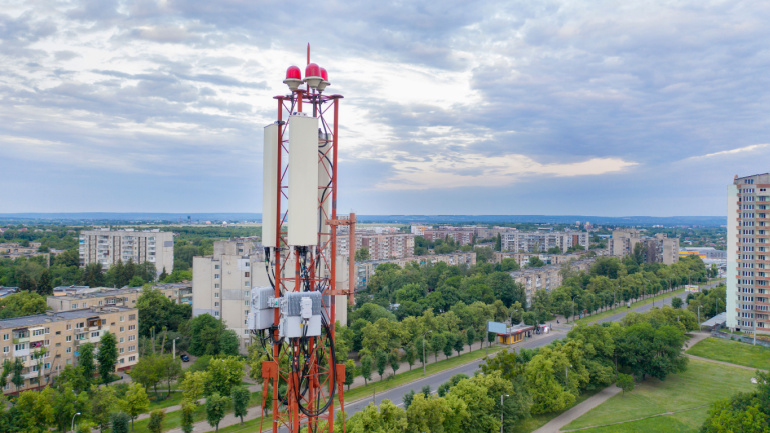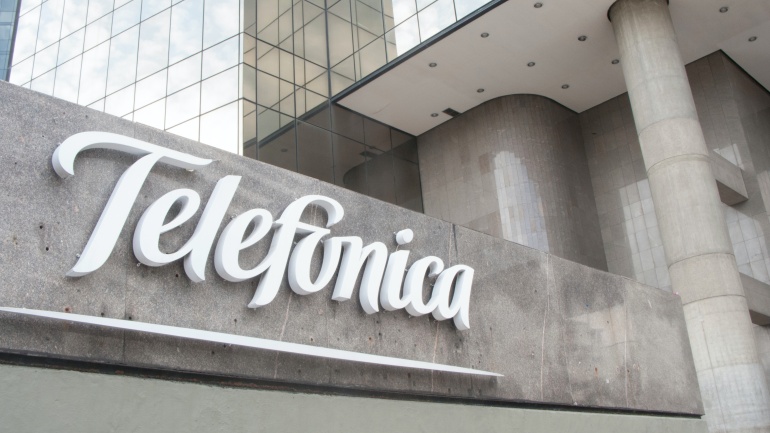UK operator EE boosts mobile connectivity for summer events with 125 temporary 4G and 5G masts, enhancing download speeds and coverage for attendees. As live events flourish, the challenge for operators is monetizing these network improvements.
Global telecom giant Veon commits $600 million to boost Ukraine’s infrastructure, focusing on 4G mobile and fiber development, while inviting other institutions to join the initiative. Kyivstar, Veon’s subsidiary, aims for 98% 4G coverage in three years, with potential 5G advancements.
VEON commits $600 million investment via Kyivstar for Ukraine’s recovery, focusing on infrastructure, 4G expansion, cybersecurity, and community support, fostering accelerated digitalization and rebuilding efforts.
Nigeria’s mobile market experiences a significant shift as the NCC allocates 25 MVNO licenses, driving competition and expanding service offerings. This move aims to improve connectivity in rural areas and transform the African telecoms ecosystem in 2023.
EE enhances 4G coverage by deploying small cells across UK towns and cities, reducing congestion and increasing capacity in high traffic areas. Utilizing advanced network analytics and Nokia’s 4G technology, EE aims to seamlessly integrate small cells into its future 5G network.
The UK’s first live wind and solar-powered mobile phone mast has been activated in Pembrokeshire (Wales) by Vodafone UK. The self-powered mast will provide 4G service to the community of Eglwyswrw and will be powered by a wind turbine, solar panels and on-site battery storage. The new mast contributes to Vodafone’s goal of achieving net zero emissions by 2027 for its UK operations. The mast is meant to eliminate the requirement for a connection to the national energy grid, a strategy that will assist in delivering connectivity in rural and distant places that are now without those critical services. The mast is equipped with a one-of-a-kind wind turbine that can generate electricity even in low wind conditions and can be deployed without the need for electrical connections. This infrastructure is also extremely quiet, making it ideal for installation in sensitive locations. The study is being carried out…
Telefonica Deutschland has comprehensive plans for a sweeping shut down of its 3G network starting in July, making it the last operator in Germany to phase out legacy technologies in favor of 4G and 5G. Approximately 16,000 3G sites are scheduled to be shut down by the company. The resources that were needed for 3G will now be repurposed for the 4G network by the end of the year. According to the operator, 4G will use the frequencies of current 3G transmitters at 2,100 MHz. This upgrade from 3G to 4G will benefit Telefónica Deutschland’s customers, as well as customers of its other brands, providing a better and faster network. A full upgrade of the first 500 3G sites will begin on July 1st. An additional 1000 sites will be repurposed two weeks later. The regions where the upgrade will begin are Lower Saxony, Saxony-Anhalt, Brandenburg and Mecklenburg-Western…
Ericsson has announced the launch of its Private 5G, which will reshape on-site connectivity by providing secure and simple 4G LTE and 5G Standalone Connectivity (SA), targeting the manufacturing, mining and process industries, offshore and power companies, as well as ports and airports. Ericsson Private 5G enhances and makes business operations using cloud network management easier, keeping sensitive data on-site without downtime, and guarantees high performance under Service-Level Agreements (SLAs). The Ericsson 5G Private network is based on a 4G/5G radio and dual-mode core technology for extensive indoor and outdoor environment use cases, that include tracking assets and real-time automation, a digital twin to help optimize production operations, effective quality checks using augmented reality, and smart surveillance drones. This technology seamlessly merges with a variety of business projects, devices, and applications to increase productivity, deliver new offerings, boost customer engagement, and improve the overall work environment. The…
Two Japanese companies, Rakuten Mobile and NEC Corporation, have announced the signing of a Memorandum of Understanding (MoU) to promote Open RAN in mobile telecommunications markets worldwide. The MoU is based on Rakuten’s current partnership with NEC, where NEC supplies 5G radio equipment to the operator. The pair is also jointly working on developing a Rakuten standalone 5G core. Under the Memorandum of Understanding, Rakuten Mobile and NEC will continue to expand their local collaboration to provide 5G and 4G radios and engineering services for Open RAN systems that are compliant with O-RAN specifications. These services will be applicable to markets worldwide and will boost the global development of the Rakuten Communications Platform (RCP). RCP is Rakuten Mobile’s fully virtualized and containerized cloud-based mobile network platform, enabling telecom businesses to station virtual networks rapidly and inexpensively. Tareq Amin, executive vice president and CTO at Rakuten Mobile, said: “Rakuten…
European Commission staying out of O2 UK and Virgin Media UK merger Typically, the European Commission, or one of the myriad other state-owned organizations that are a part of the EU, would be involved in the proposed merger between O2 UK and Virgin Media UK. However, in this case, these organizations are steering clear of this deal. The theory is this: because the UK will no longer be part of the EU from the beginning of next year, the EU will no longer be interested in what UK companies do. Even if the EU had not made this decision now, it is likely that they would have just waited until 2021, when its jurisdiction over UK matters comes to an end. Read more at: https://tinyurl.com/y2n84cgn Telia Carrier expands its connectivity in US Telia Carrier is expanding its coverage in the US, while increasing the diversity and range of its routes.…













